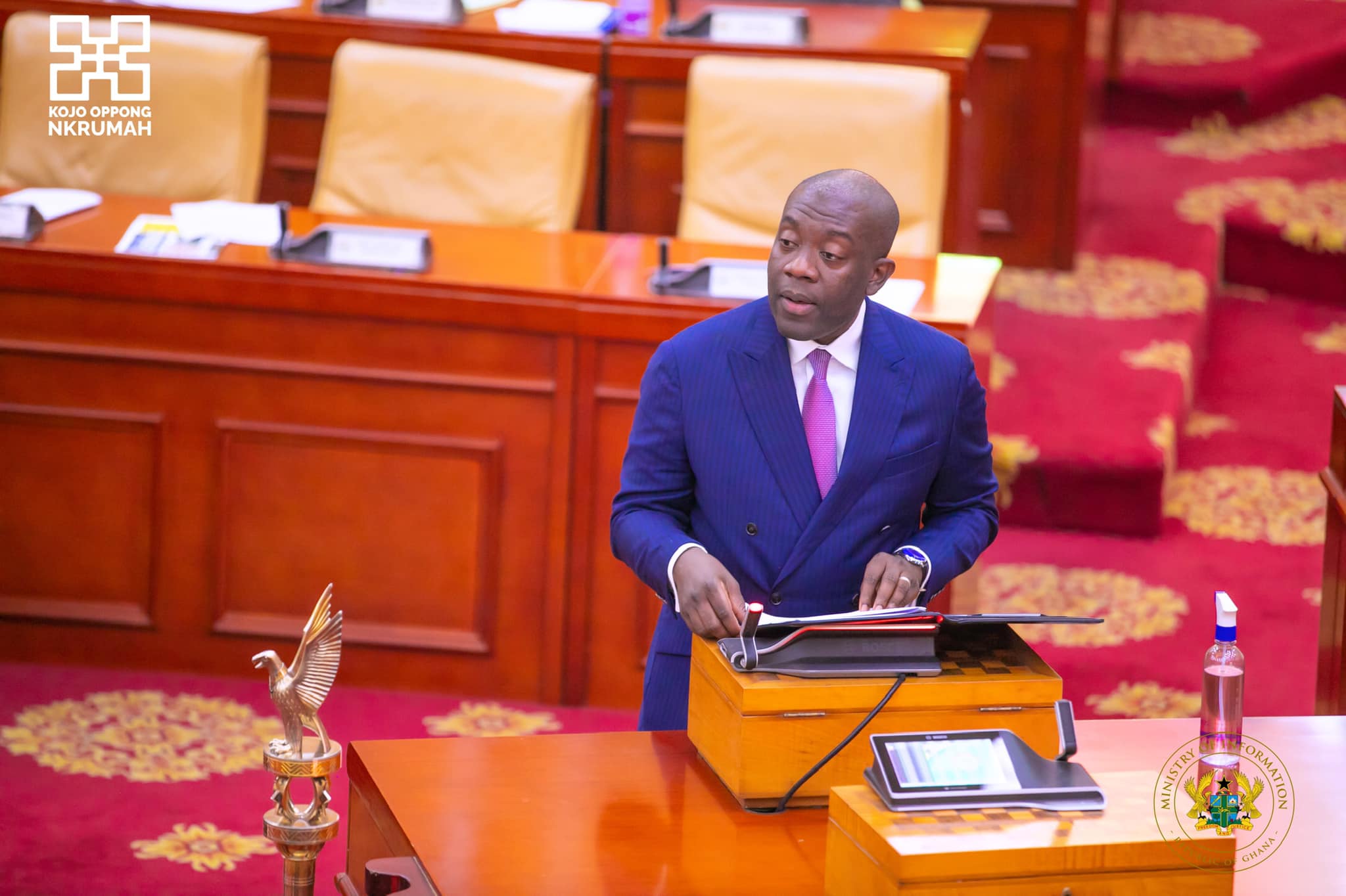247 RTI requests were received in 2021- Oppong-Nkrumah
Overall 247 requests were received and processed in 65 public institutions.

The Minister for Information, Kojo Oppong-Nkrumah has said that in 2021, a total of 189 public Institutions submitted their reports to the Right To Information(RTI) Commission and that in all, 247 requests were received and processed in 65 public institutions.
He noted further that 159 of the requests were granted while the others were refused, deferred, transferred, or denied in accordance with the Act.
He made this known on Tuesday, June 28, 2022, when he appeared before Parliament to give a report on the implementation of the RTI Law.
Additionally, the Information Minister revealed that the Department of Children received the highest in the year under review thus 2021(January- December).
Mr. Oppong-Nkrumah then used the opportunity to entreat all to make use of the RTI Act to access information from public institutions.
The Right to Information Act, 2019 (Act 989), is an Act of Parliament that provides for the implementation of the constitutional right of persons to access official information held by public institutions (and relevant private institutions that receive public resources or perform public functions), subject to the exemptions that are necessary and consistent with the protection of public interest in Ghana.
Information under the RTI Act, 2019 refers to a recorded matter or material (regardless of form or medium) in the possession or under control or custody of a public institution.
Ghana recognized the right to public information as a human right in 1992 and made a provision for it in the 1992 Constitution. Article 21(1) (f) of the constitution states that “All persons shall have the right to information subject to such qualifications and laws as are necessary for a democratic society”. This provision guarantees a person – irrespective of gender, nationality, and ethnicity, and any other physical or social differentiation – access to information in the custody of a “public institution” and any “relevant private body”.
The United Nations (UN) also recognizes access to information as a Universal Right and a critical tool in strengthening democracy and promoting transparency, accountability, open governance, and sustainable developments. The Right to Information Act, 2019 provides the framework to foster a culture of transparency in public affairs in Ghana.
The Institute of Economic Affairs (IEA) 1999 drafted the first Bill that sought to promulgate access to public information in Ghana. The consideration of this Bill went through five different political administrations and, after two decades, was finally passed into Law in March 2019 as the Right to Information Act, 2019 (ACT 989). The President of the Republic, Nana Addo Dankwa Akufo-Addo assented to it on May 21, 2019, and in accordance with Section 86, the Act was expected to “come into force at the commencement of the next financial year”. This was necessary to ensure that the needed infrastructure and resources were put in place. The application of the RTI Act, 2019 (ACT 989) began in January 2020 and is binding on all public sector institutions. The Act applies to information that exists before and after the commencement of the Act.
Following the historic passage of this law, the Ministry of Information was tasked with the responsibility of ensuring that public institutions are adequately prepared and ready to deliver satisfactorily on their obligations under Act 989. The Ministry led the process for the planning and implementation of a strategic roadmap. This process was undertaken in consultation with key stakeholders, including the Parliament Select Committee on Communications, the RTI Coalition, the Data Protection Commission, UNESCO Ghana, and the Heads of the Civil and Local Government Services. The stakeholders guided the formation and development of appropriate and standardized systems, as well as a framework for the implementation of the RTI Act, to avoid breaches and guarantee smooth operationalization. The Ministry acknowledges the support and contribution of these key stakeholders in ensuring the smooth take-off of this important public policy.


